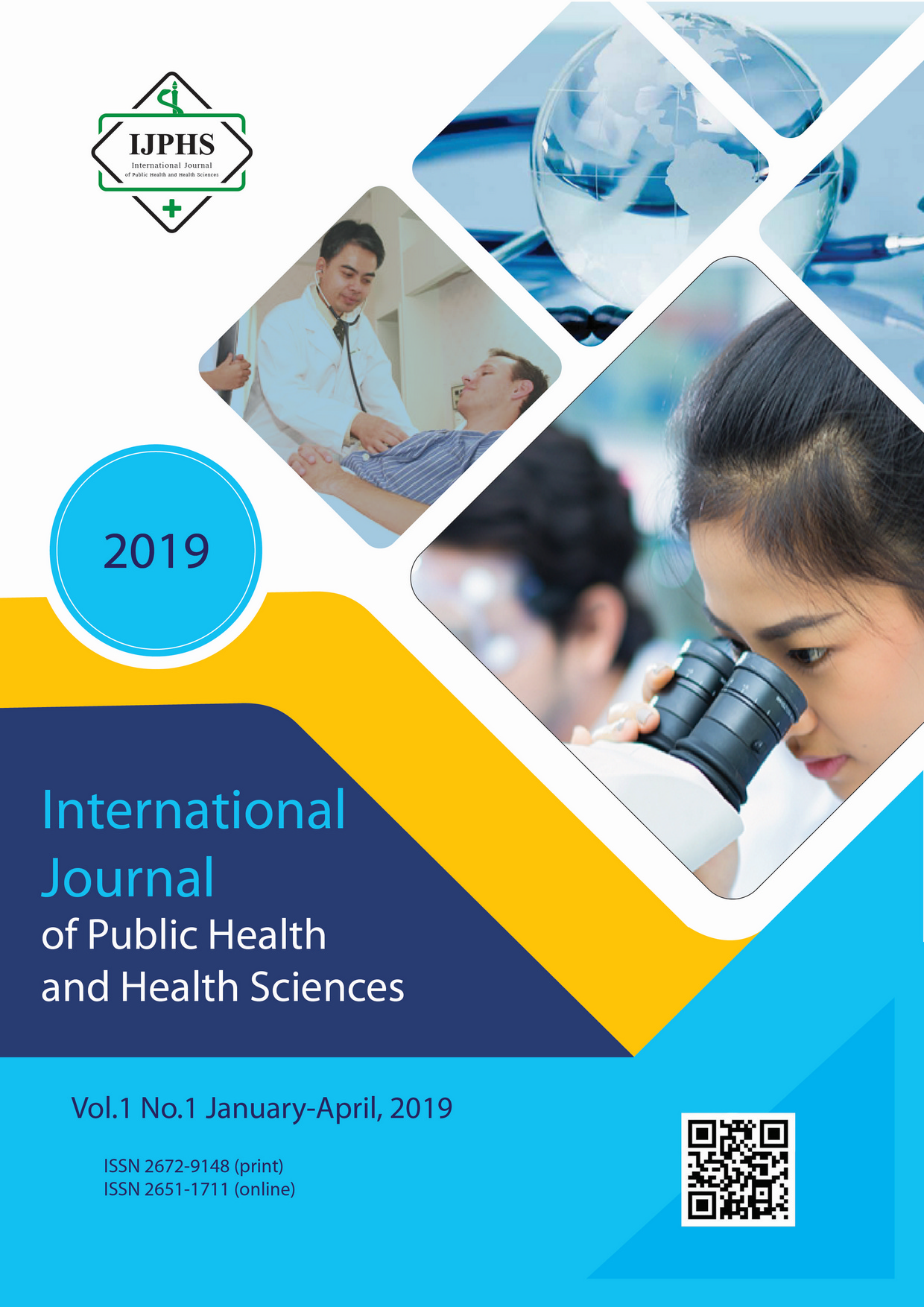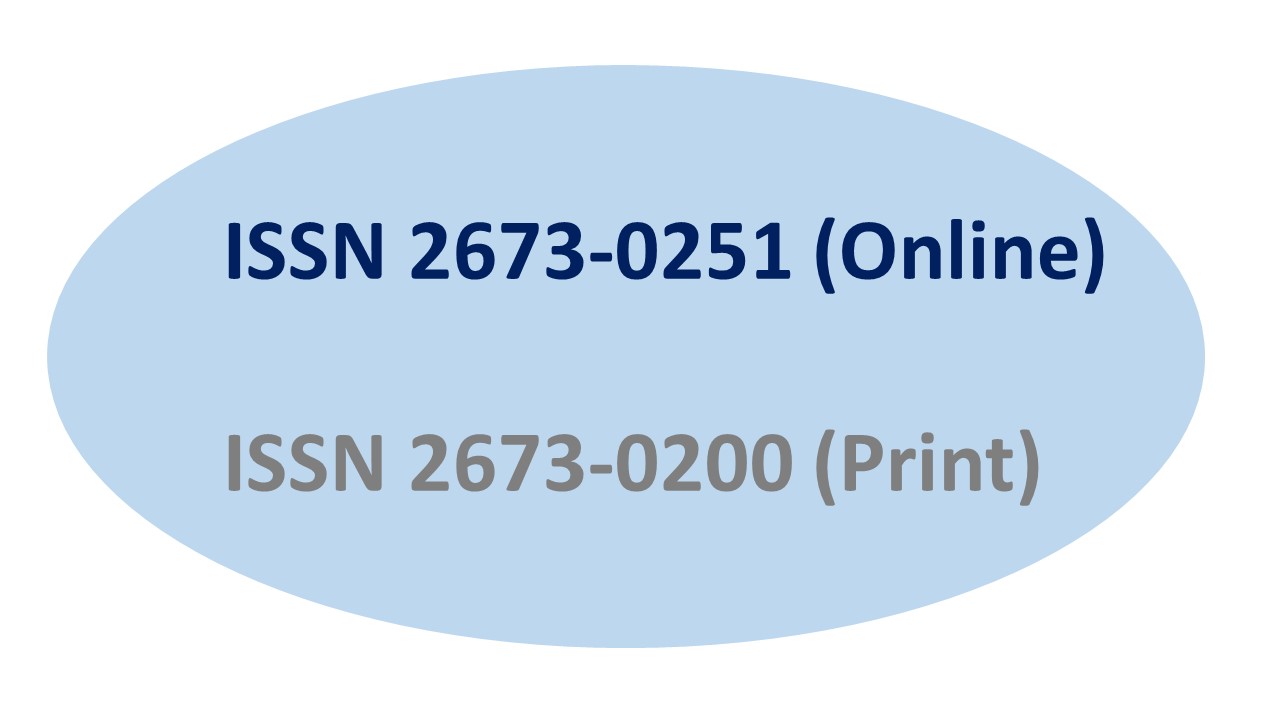Lifestyle-Appropriate Peer Supports for Glycemic Control among Type 2 Diabetes Patients in Thailand
Keywords:
glycemic control, lifestyle-appropriate peer supports, self-care managementAbstract
Diabetes, a worldwide health problem, is a chronic, lifelong condition which requires continuous self-care management to keep glycemic level under control. More often than not, self-care management is short-lived if not appropriately supported. This quasi-experimental study, three-group pre-post-test was carried out to assess the effects of context and lifestyle appropriate peer support models in an agricultural and non-agricultural communities. A total of 58 and 30 type 2 diabetes patients were recruited into the intervention and comparison groups, respectively. Out of 58 patients in the intervention group, 29 patients each were selected from an agricultural community and from non-agricultural community to observe different peer support models and glycemic levels between these two groups and in the comparison group. The inclusion criteria included aged 35 – 75 years, fasting blood sugar (FBS) lied between 30 – 300 mg/dl, and systolic blood pressure did not exceed 200 mmHg. Trans-theoretical Model, participatory learning, inclusive planning, and social support were used to guide the intervention activities to increase knowledge and self-care management behaviors. Twenty village health volunteers in the experimental areas were recruited and trained to function as peer supporters. The intervention lasted six months from July to December 2011. After the intervention, patients in both experimental groups significantly improved their self-care management and reduced HbA1C from 8.02 to 7.5% (p-value<0.05) in agricultural and from 8.54 to 7.60% in non-agricultural group (p-value<0.01), while those of the comparison group slightly increased. Two different peer support models were identified in the agricultural and non-agricultural communities. Results from this study showed that peer supports appropriately tailored to the context and lifestyle of diabetes patients could significantly increase knowledge, improve self-care management, reduce BMI and blood sugar levels of the patients. It is suggested that peer support using context and lifestyle appropriate strategies be integrated into country health care system to make self-care management among chronically ill patients sustainable.
References
Prevalence of Diabetes and Relationship with Socioeconomic Status in the Thai Population: National Health
Examination Survey, 2004–2014.Journal of Diabetes Research.Article ID 1654530, 8 pages.Retrieved March 22,
2019, from https://doi.org/10.1155/2018/1654530.
American Diabetes Association. Diabetes Learning Center for the Recently Diagnose.Retrieved 20th August 2008 from:
https://www.diabetes.org/all-about-diabetes/diabetes-learning-center.jsp.
Bandura, A. (1977). Social Learning Theory.Englewood Cliffs: Prentice Hall.
Bartholomew, LK., Parcel, G.S., Kok, G., & Gottlieb, N.H. (2001). Intervention Mapping:designing theory-and evidence-
based health promotion program. Mountain View, California: Mayfield Publishing Company.
Baumann, LC., Dang, Thanh, & Ngoc, Tran. (2012).Helping patients with chronic conditions: overcome barriers to self-
care. The Nurse Practitioner, 37(3):32-8.
Becker M.H. The Health Belief Model and personal health behavior.(1974). New Jersy: Slack. Thorofare.
Brownson, CA., & Heisler, M. (2009).The role of peer support in diabetes care and self-management. The Patient-Centered Outcomes Research. Retrieved 11th December 2011 from: https://adisonline.com/the
patient/Abstract/2009/02010/The_Role_of_Peer_Support_in_Diabetes_Care_and.2.aspx.
Bureau of Policy and Strategy, Ministry of Public Health. (2007).Thailand Health Profile Report.Bangkok.Express
Transportation Organization Printing Press.
Dale, J., Caramlau, I., Sturt, J., Friede, T., & Walker, R. (2009). Telephone peer-delivered intervention for diabetes
motivation and support: the telecare exploratory RCT. Patient Educ Couns, 75(1):91–8.
Fisher, EB., Ayala, GX., Ibarra, L., Cherrington, AL., Elder, JP., Tang, TS., et al,.(2015). Contributions of Peer Support to
Health, Health Care, and Prevention: Papers from Peers for Progress. Annals of Family Medicine, 13(Suppl 1): s2-s8.
Fisher, EB., Earp, JA., Maman, S., &Zoloter, A. (2010). Cross-cultural and international adaptation of peer support for
diabetes management. Fam Pract, 27(Suppl 1):i6-i16.
Fisher, EB., Boothroyd, RI., Coufal, MM., Bauman, LC., Mbanya, JC., Rotheram-Borus, MJ., Sanguanprasit, B.,
&Tanasukarn, C. (2012). Peer Support For Self-Management of Diabetes Improved Outcomes in International
Settings. Health Affairs, 31(1):130-139.
Heisler, M., Vijan, S., Makki, F., &Piette, JD. (2010). Diabetes control with reciprocal peer support versus nurse care
management: a randomized trial. Ann Intern Med, 153(8):507–15.
Henderson, S., Kendall, E., & See, L. (2011). The effectiveness of culturally appropriate interventions to manage or
prevent chronic disease in culturally and linguistically diverse communities: a systematic literature review. Health and
Social Care in the Community, 19(3):225-249.
Howteerakul, N., Suwannapong, N., Rittichu, C., &Rawdaree, P. (2007).Adherence to Regimens and Glycemic Control
of Patients with Type2 Diabetes Attending a Tertiary Hospital Clinic.Asia Pac J Public Health,19(1): 43-49.
Junior Davis and Douglas Pearce (2001). The Non-Agricultural Rural Sector inCentral and Eastern Europein ‘The
Challenge of Rural Development inthe EU Accession Process’. Lerman, Z and Csaki, C. (editors).World Bank
Technical Publication.
Lerman, C., & Glanz, K. (1997). Stress, Coping and Health Behavior. In Glanz, K., Lew’s, F.M., &Rimer, B.K. (Eds.)
Health Behavior and Health Education: Theory, Research, and Practice. 2nd Edition(pp. 211-230).San
Francisco:Jossy-Bass Publishers.
Long ECJ, JA., Richardson., DM., Loewenstein, G., &Volpp, KG. (2012).Peer mentoring and financial incentives to
improve glucose control in African American veterans. Ann Intern Med,156:416–24.
Lorig, K., Ritter, PL., Villa, FJ., &Armas, J. (2009). Community-based peer-led diabetes self-management: a randomized
trial. Diabetes Educ, 35(4):641–51.
Lwanga, SK., &Lemeshow, K. (1991). Sample size determination in health studies: A practical manual.World Health
Organization, Geneva.
Mayurasakorn K, Sornthip N, Caengow S, Chulkarat N, Wanichsuwan M. (2009). Glycemic control and microvascular
complications among type 2 diabetes at primary care units. J Med Assoc. Thai, 92(8):1094-1101.
Pethchit R. (2015). Self-Care Behaviors and Blood Sugar Control among Patients with Diabetes Mellitus at Khiensa
Hospital, Suratthani Province. The Southern College Network Journal of Nursing and Public Health, 6(2):15-28
Sacco,WP., Malone, JI., Morrison, AD., & Friedman, A., & Wells, K. (2009). Effect of a brief, regular telephone
intervention by paraprofessionals for type 2 diabetes. J Behav Med, 32(4):349–59.
Sanguanprasit, B., Leelaphan, P., Techaboonsermsak, P., &Jongsuwat, R. (2016).Village health volunteers as peer
supports for glycemic control among type2 diabetes patients in Thailand. Journal of Public Health and Development,
14(2): 49-60.
Sanguanprasit, B., Leelaphan, P., Techaboonsermsak, P., &Jongsuwat, R. (2011). Community volunteers help control
diabetes in Thailand.Health in South-east Asia, 4(2): 7-10.
Thom, DH., Ghorob, A., Hessler, D., De Vore ,D., Chen, E., & Bodenheimer, TA. (2013). Impact of peer health coaching
on glycemic control in low-income patients with diabetes: a randomized controlled trial. Ann Fam Med,11(2):137-144.
Toobert, DJ., Hampson, SE., &Glasgow, RE. (2002). Diabetes Care, 23(7): 943 – 950.
Worawongprapa O (2008). Glycemic control in diabetes with metabolic syndrome in community hospital. J Med
Assoc. Thai,21(5):641-647.
World Health Organization, Department of Noncommunicable Disease Surveillance. (1999). Definition, Diagnosis and
Classification of Diabetes Mellitus and its complications. WHO, Geneva.
Downloads
Published
Issue
Section
License
If the manuscript is accepted for publication, copyright of the article shall be assigned to the IJPHS. After acceptance of a manuscript, the authors will be requested to complete a copyright transfer agreement form







